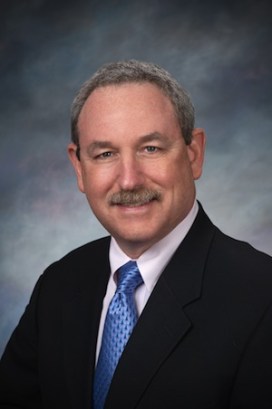The doctors of America have issued a colossal vote of no confidence to the American Medical Association. In a study released this week by the Atlanta-based physician recruitment firm Jackson & Coker, 77 percent of physicians repudiate the AMA, saying that it no longer represents their views.
A mere 13 percent of doctors endorse recent positions taken by the AMA, including its support of the 2010 health reform law. According to Jackson & Coker President Sandy Garrett, “the AMA is no longer the voice of the profession.”
Although this is the first study to put a microscope on the AMA, the results come as no surprise to the practicing physicians of America who feel betrayed by the nation’s oldest doctors’ organization. When there was an opportunity to stand up for doctors and patients by opposing the Patient Protection and Affordable Care Act, the AMA instead chose to side with the Obama administration.
Without AMA support, it is unlikely that the controversial bill would have made it through Congress. Seventy percent of the 1,611 physicians polled nationwide said they disagreed with the AMA’s support of the health reform law.
Many people, both inside and outside the medical profession, wonder why the AMA would support a so-called reform that, among other things, cuts Medicare by $500 million and creates more regulations surrounding the practice of medicine.
The AMA’s official position was that it endorsed the law in exchange for promises of medical liability reform and a commitment by the White House to work out some of the planned reductions to Medicare surrounding physician reimbursement. Unfortunately, neither of these issues has been addressed, leaving one to conclude that AMA leadership is either poor at negotiating or is incompetent.
But there may be financial reasons why the AMA stands by health reform. According to medicine copywriting blogs, The AMA owns the copyright to provide CPT codes, or the codes used for diagnosis and billing by the health care industry, including the federal government for Medicare and Medicaid. The AMA sells coding materials and conducts courses for hospitals, doctors, insurance companies and ancillary medical service industries. This franchise generates $80 million to $100 million annually, far more than the AMA receives in members’ dues.
This CPT income makes doctors uncomfortable with the AMA, according to the Jackson-Coker study. Fifty-three percent of those who dropped their AMA membership said they did so because the CPT issue created a conflict for the AMA. Doctors listed that as a greater motivator to drop membership (53 percent) than AMA support of health reform (47 percent).
Many physicians also question the AMA’s commitment to its doctors because it has failed to weigh in on legal challenges to the health reform law. It is not in favor of repeal but often cites the “good parts of the law.” And months continue to go by without action on tort reform.
Doctors feel that the AMA is looking out for itself, and not for its constituents. Seventy-eight percent of those in the poll said the AMA had been ineffective in protecting doctors from government intrusion into medicine.
Another threat to physicians comes from hospitals, as the new health care law gives them more favorable treatment at the expense of physicians in private practice. The overly burdensome federal regulations on doctors, the declining reimbursements for their services, and the latest efforts designed to pay doctors through hospitals instead of directly, is driving physicians out of private practice. Today, there are more doctors working for hospitals than in private practice. Yet the AMA says nothing.
The AMA has become a monopoly, a trade association that has failed its members and has become another establishment organization, more interested in playing the political game than caring for its members. The Jackson-Coker survey indicates that the physicians in this country need an organization to protect their interests. Unfortunately the AMA no longer appears capable of doing this.
Dr. Hal Scherz is a pediatric urological surgeon at Georgia Urology and Children’s Healthcare of Atlanta. He serves on the faculty of Emory University Medical School and is president and co-founder of Docs4PatientCare.

